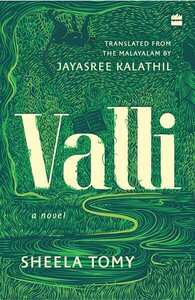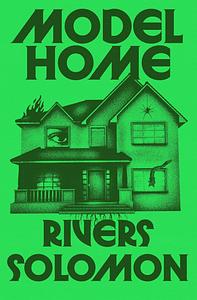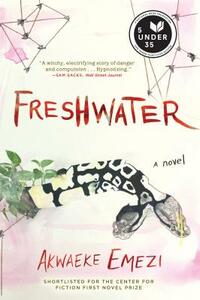Take a photo of a barcode or cover
notesofacrocodile's Reviews (254)
emotional
reflective
sad
as i finished this novel i found it extremely difficult to summarise how i felt while reading it; so many emotions and thoughts, all bursting and tinted with the mist and green of the forests in kalluvayal, the setting where most of the story takes place. i cannot emphasise how important this book is, even as adivasi communities continue to suffer in wayanad and across india for wanting to protect their land from capitalist greed and exploitation which disregard the ecosystem and the people who live in it.
thommichan and sara are a young, hopeful couple who elope together to kalluvayal, where they meet and interact with a host of colourful characters within the lush, verdant landscape. all of this is narrated by susan (thommichan and sara's daughter) in a diary preserved for her own daughter, tessa. if you're looking for a plot, then look away because this book isn't going to give you one- it simply does what literary fiction does best, with explorations of complex characters and themes.
an important theme is relating to the dynamic between the oppressor and the oppressed, within the context of the adivasis and the jenmis (or the landlords). we see how what is violence and what isn't is dictated by those in power, how the media is twisted to comply with the narrative of the ruling class. we see how the oppressor inflicts cruelties and is shocked when that isn't met with grace: they're shocked when the adivasis react with protests when the latter aren't paid as promised, and we see how they're shocked when the people of a land protest deforestation and environment degradation. is poverty, deforestation, and cultural hegemony not violence too?
another important theme lies in the close relationship between the land and the women, both being explored as sites of violence, exploitation, and resistance. they two are also explored in relation to displacement and erasure of identity: the kabani (a river that is an important landmark in the area) dries up from rapid urbanisation, while sara is banished and forgotten from her home town due to her elopement. susan goes to a completely different country for work, and finds that the idols in the shrines of kalluvayal still call for her, except she cannot go back immediately because her life trajectory took her elsewhere. meanwhile, the culture of kalluvayal is rich, but suffers from being overshadowed by the dominant, mainstream language and practices that threaten to completely replace it.
there is an intimacy in the co-existence with the land that the adivasi people here possess:
thommichan and sara are a young, hopeful couple who elope together to kalluvayal, where they meet and interact with a host of colourful characters within the lush, verdant landscape. all of this is narrated by susan (thommichan and sara's daughter) in a diary preserved for her own daughter, tessa. if you're looking for a plot, then look away because this book isn't going to give you one- it simply does what literary fiction does best, with explorations of complex characters and themes.
an important theme is relating to the dynamic between the oppressor and the oppressed, within the context of the adivasis and the jenmis (or the landlords). we see how what is violence and what isn't is dictated by those in power, how the media is twisted to comply with the narrative of the ruling class. we see how the oppressor inflicts cruelties and is shocked when that isn't met with grace: they're shocked when the adivasis react with protests when the latter aren't paid as promised, and we see how they're shocked when the people of a land protest deforestation and environment degradation. is poverty, deforestation, and cultural hegemony not violence too?
another important theme lies in the close relationship between the land and the women, both being explored as sites of violence, exploitation, and resistance. they two are also explored in relation to displacement and erasure of identity: the kabani (a river that is an important landmark in the area) dries up from rapid urbanisation, while sara is banished and forgotten from her home town due to her elopement. susan goes to a completely different country for work, and finds that the idols in the shrines of kalluvayal still call for her, except she cannot go back immediately because her life trajectory took her elsewhere. meanwhile, the culture of kalluvayal is rich, but suffers from being overshadowed by the dominant, mainstream language and practices that threaten to completely replace it.
there is an intimacy in the co-existence with the land that the adivasi people here possess:
"Basavan did not understand what his son told him about the government looking after the forest. His son was studying about the forest. But how could he do that far away in town? Should he not be in the forest to learn about the forest? Basavan knew all about the forest, when each tree unfurled its leaves, when it flowered, when it shed its leaves, where the birds nested and which nest belonged to which bird, when they brooded their eggs, which ones roosted in the westering light and which ones took off to catch the worm, which ones went on long flights across the world. He knew where the elephant trails were, and the tiger dens, the names of the creatures that lived in the rivers, the time when fish spawned, the whirlpools in the waters and the crocodile nests. What more was there to learn about the forest!"
a criticism of academia lurks within the prose too. who really are the experts on a land? who deserves to be seen as one? who decides that? the forests of kalluvayal is of interest to researchers in studies relating to culture and history, and they come to take and take and take, upon which they leave and them become self-styled experts on the subject. but what kind of knowledge is that?
this story is also a collection of love stories. the love between thommichan and sara, between basavan and rukku, between peter and lucy, between james and susan, and so on. it's also a love letter to a land, a land that all these characters care for, weep for, and rest on the pulse of.
the prose was abundant and lyrical. there were careful, loving descriptions of the flora, which felt like the meticulous brushstrokes of a painter painstakingly attempting to ensure that you can see his vision because he loves it so; makes sense, since sheela tomy herself is from wayanad and her love for it shows in her work. i would suggest that for anyone who doesn't understand malayalam, it would be best to keep google open nearby because there are many words and terms that are preserved in the original language. it feels deliberate, as the words themselves become important in becoming grounded in the story.
one of my favourite reads of this year, my heart overflowed, broke, and mended itself many times over.
dark
mysterious
tense
much needed breath of fresh air in the haunted house genre; although, of course, to keep the haunted house as the defining feature of this novel would be a reductionist view of it. it's more grounded in reality in how it considers the very real horrors of systemic racism and generational trauma. the protagonist, who is the one mainly contributing towards the narrative, is tired and dissociative, and we feel xer exhaustion seeping through xer words.
usually, when we read horror novels with some sort of mystery and suspense at the center (as is often the case), reviewers may often feel compelled to point out that the twist was predictable, that they saw it coming from miles away. the thing about the ending of this novel is that it doesn't really care about whether you saw it coming or not because it still manages to devastate and drive the point home, that it's always going to be terrifying, regardless.
model home examined the themes of white supremacy and it's impact on black individuals with pronounced references to the need to understand it and it's effects structurally. it talks about abuse and abusive behaviour, and also intergenerational trauma: how even when you swear to not pass it on, some of it could still slip through the cracks because in the quest to not be like a person, you end up still defining yourself in relation to that person anyway. the protagonist also happens to be queer and genderqueer (using neopronouns), and autistic with chronic pain, and we see how those factor into daily interactions.
it's heart-wrenching, depressing, and tense. rivers solomon's prose keeps it raw and also lyrical, in turns and together, which ties together the stories and the characters really well.
usually, when we read horror novels with some sort of mystery and suspense at the center (as is often the case), reviewers may often feel compelled to point out that the twist was predictable, that they saw it coming from miles away. the thing about the ending of this novel is that it doesn't really care about whether you saw it coming or not because it still manages to devastate and drive the point home, that it's always going to be terrifying, regardless.
model home examined the themes of white supremacy and it's impact on black individuals with pronounced references to the need to understand it and it's effects structurally. it talks about abuse and abusive behaviour, and also intergenerational trauma: how even when you swear to not pass it on, some of it could still slip through the cracks because in the quest to not be like a person, you end up still defining yourself in relation to that person anyway. the protagonist also happens to be queer and genderqueer (using neopronouns), and autistic with chronic pain, and we see how those factor into daily interactions.
it's heart-wrenching, depressing, and tense. rivers solomon's prose keeps it raw and also lyrical, in turns and together, which ties together the stories and the characters really well.
unsettling ambiguity marks the atmosphere and motives of nearly all of the characters in this novel. the primary theme tackled is the perverse disconnectedness inculcated by isolation and ostracisation. the choice of merricat as the protagonist is unique and even more so is how her voice is fleshed out; the first person account allows us an inroad into her thought process which is focused on questionable manifestations of safety and protection, for herself and her sister. overall, it was a pleasure to read shirley jackson again; the sense of uneasiness that her writing provokes is truly unique.
what a resplendently rendered indian classic! the writing, the characters, the relationships between them, and even the descriptions of scenes all had a glow from attia hosain's masterful writing. the writing captured and described laila's interiority and her manner of thought with an engrossing ornateness without being excessive. it had a thoughtfulness to it that brought out the richness of what could have otherwise been mistaken for uninteresting observations.
the major themes were of class and classism, memories and their haunting presence, social conventions and the way it limits a person in more ways then one would think. family and one's duty to it is central tenet that we see come forward often, intertwining with the abovementioned themes. there's also the search for one's own identity as an entire nation figures itself out in the background, and, of course, love in all its forms and manifestations.
the major themes were of class and classism, memories and their haunting presence, social conventions and the way it limits a person in more ways then one would think. family and one's duty to it is central tenet that we see come forward often, intertwining with the abovementioned themes. there's also the search for one's own identity as an entire nation figures itself out in the background, and, of course, love in all its forms and manifestations.
more than any other sentiment, what engulfs the reader (as it does the women in the story) is the helplessness of the women. their circumstances are such that we begin to feel helpless ourselves from not being able to leap through the pages and get them out (or even to give the men a punch in the head). the women in these stories are not perfect themselves, but we understand that they are simply functioning for survival amidst a highly classist and patriarchal society that demands who they should obey and how.
all books have a context to them within which they are written, and this short story collection is no different. the origins of this collection can be traced back to the author's efforts during the bandaya sahitya (sahitya meaning literature, and bandaya meaning dissent/resistance), a progressive literary movement based in karnataka that is worth reading about. it places the stories and the author's endeavour in a new light, one which makes you appreciate them all a lot more. i would also suggest not leaving out the translator's note at the end, as it highlights some of the translation context and the process better.
some of my favourite stories: be a woman once, oh lord!, red lungi, the shroud, black cobras, and the arabic teacher and gobi manchuri.
all books have a context to them within which they are written, and this short story collection is no different. the origins of this collection can be traced back to the author's efforts during the bandaya sahitya (sahitya meaning literature, and bandaya meaning dissent/resistance), a progressive literary movement based in karnataka that is worth reading about. it places the stories and the author's endeavour in a new light, one which makes you appreciate them all a lot more. i would also suggest not leaving out the translator's note at the end, as it highlights some of the translation context and the process better.
some of my favourite stories: be a woman once, oh lord!, red lungi, the shroud, black cobras, and the arabic teacher and gobi manchuri.
read this because i wanted to know more about the source material for the film sabrina (1954) which i had watched recently! safe to say, audrey hepburn and william holden really added the charm to their characters.
dark
sad
tense
there aren't a lot of novels i have read similar to this one, i still have no words. the writing was beautiful; haunting and tragic in turns and together.
k. vaishali has penned a memoir that attempts to capture the unique situational context of india, within which she places equal weight on her disability and sexuality: for the first half of her life she is unable to identify or verbalise her troubles associated with dyslexia and dysgraphia and suffers for it. later as she settles into her identity as a lesbian she is pushed further into a deepening spiral of loneliness.
the author doesn't make things sound poetic or rose-coloured, her prose is straightforward: here is how she suffered and here is how she got through this. there's a part where she explains her inability to read arundhati roy's the god of small things due to the intricacy of roy's prose; it hurt my heart but i could also see how it could be frustrating for a person with similar issues to her own. as wry-toned as the memoir was, i do respect her honesty in what and how she wrote. its straightforwardness communicated a diaristic genuineness which in this circumstance could be a more authentic medium of narrating personal events than a highly-polished memoir with dramatic prose that leads nowhere. class and caste are commented on, as the author is a (probably upper) middle-class brahmin woman, with some of her difficulties emerging partly due to the shelteredness her privilege accorded her for the years before she left her home as well.
i think a criticism that i had seen for this memoir often had to do with how she was 'whining' or complaining too often, which i would think is a highly insensitive comment to make. she clearly shows the struggles she has to go through and she has clearly underscored how writing about what she has been through could be cathartic for her. as a disabled person who had to prove her disability often, born into a highly troubled household and a country that deemed queer sex illegal till 2018, the struggles are constant and exhausting for her and it would make sense that she would want to elaborate on that and the profound effect it has on a lot of parts of her life rather than mention it in a throwaway line.
the memoir is only a slice of her life; a slice saturated with struggle, pain, opinions, comments, and thoughts, but a slice nevertheless. i do wish its scope could have encompassed a more substantial view of her journey and also gone on for longer before it slapdashed to her present situation.
the author doesn't make things sound poetic or rose-coloured, her prose is straightforward: here is how she suffered and here is how she got through this. there's a part where she explains her inability to read arundhati roy's the god of small things due to the intricacy of roy's prose; it hurt my heart but i could also see how it could be frustrating for a person with similar issues to her own. as wry-toned as the memoir was, i do respect her honesty in what and how she wrote. its straightforwardness communicated a diaristic genuineness which in this circumstance could be a more authentic medium of narrating personal events than a highly-polished memoir with dramatic prose that leads nowhere. class and caste are commented on, as the author is a (probably upper) middle-class brahmin woman, with some of her difficulties emerging partly due to the shelteredness her privilege accorded her for the years before she left her home as well.
i think a criticism that i had seen for this memoir often had to do with how she was 'whining' or complaining too often, which i would think is a highly insensitive comment to make. she clearly shows the struggles she has to go through and she has clearly underscored how writing about what she has been through could be cathartic for her. as a disabled person who had to prove her disability often, born into a highly troubled household and a country that deemed queer sex illegal till 2018, the struggles are constant and exhausting for her and it would make sense that she would want to elaborate on that and the profound effect it has on a lot of parts of her life rather than mention it in a throwaway line.
the memoir is only a slice of her life; a slice saturated with struggle, pain, opinions, comments, and thoughts, but a slice nevertheless. i do wish its scope could have encompassed a more substantial view of her journey and also gone on for longer before it slapdashed to her present situation.
dark
mysterious
before i begin, i am so grateful to this novel for pulling me back from the edge of a reading slump and providing some respite during some busy and mentally exhausting days as i prepare for an important examination.
the book was off to a fine start: a rainy night, a charles dickens cameo, and a father-daughter duo devoted to each other. it was not so bad even as the horror element began to move its cogs. but then the issues slowly started to make themselves known; for one, it lacked the appropriate level of tension to create substantial unease in the reader. there was a lack of build up and urgency that no mentions of invisible violent hands or thick fogs could substantiate. there were some compelling bits and pieces here and there as the lore was revealed and we begin to understand the true circumstances of the events surrounding the haunting but overall, it proved to be lackluster in its execution and follow-up. the revelation of the lore itself was paced poorly, i think: we initially know nearly nothing and suddenly we know nearly everything! i didn't mind the protagonist so much, i thought her characterisation was good enough although it was laughable regarding the sheer extent to which she ignored signs of obvious paranormalcy.
the book was off to a fine start: a rainy night, a charles dickens cameo, and a father-daughter duo devoted to each other. it was not so bad even as the horror element began to move its cogs. but then the issues slowly started to make themselves known; for one, it lacked the appropriate level of tension to create substantial unease in the reader. there was a lack of build up and urgency that no mentions of invisible violent hands or thick fogs could substantiate. there were some compelling bits and pieces here and there as the lore was revealed and we begin to understand the true circumstances of the events surrounding the haunting but overall, it proved to be lackluster in its execution and follow-up. the revelation of the lore itself was paced poorly, i think: we initially know nearly nothing and suddenly we know nearly everything! i didn't mind the protagonist so much, i thought her characterisation was good enough although it was laughable regarding the sheer extent to which she ignored signs of obvious paranormalcy.









